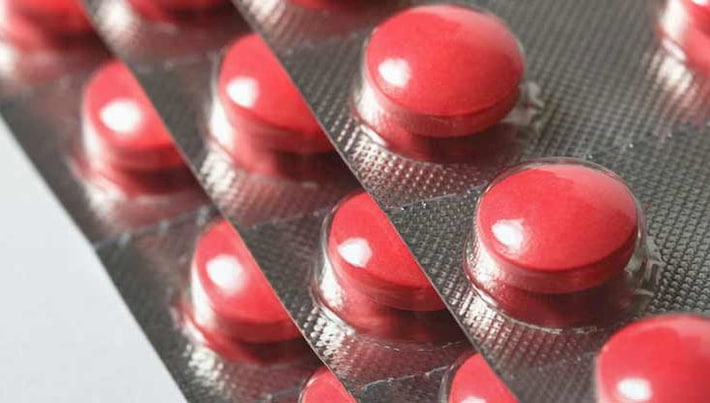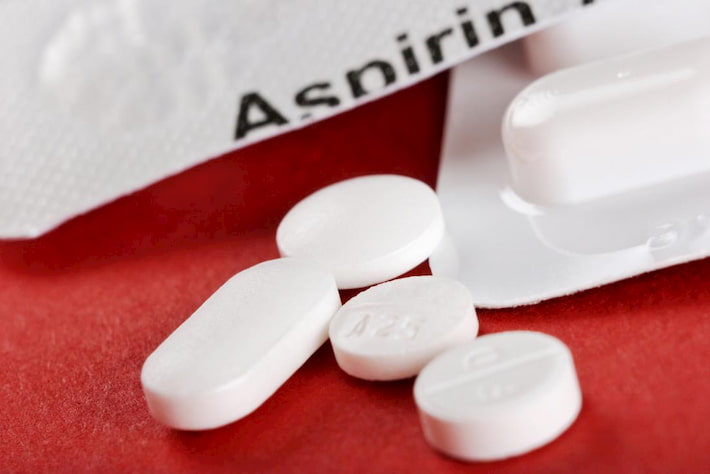Sinus infections are usually caused by a virus and often persist even after all other upper respiratory symptoms are gone. Sometimes they can be caused by bacteria or in some cases, by allergies, tooth infections or nasal polyps.
Nasal congestion and sinus infections have similar symptoms to a common cold. The only difference is how long those symptoms linger. Acute sinusitis can last up to 4 weeks, but usually last no longer than 10 days, whereas chronic sinusitis may last up to 3 months and can linger for years.
Usually, sinus infections can get better on their own, but if you don’t want to develop chronic sinusitis, you should take matters into your own hands and do something about it to speed up the recovery process.

Source: medicalnewstoday.com
Use Over-the-Counter (OTC) Medications
If home remedies fail to help you to entirely relieve sinusitis symptoms, you can ask your pharmacist to recommend you some OTC medicines. There are different sinus relief medications on the market, such as pain relievers, sprays, pills, gels and so on, and before using some of them, you should follow the instructions written on the label or ask your pharmacist to explain how to use them safely and what type of sinus medicine you need the most at the moment. There’s no doubt that there are various types of sinus medicine without a prescription that can tame your uncomfortable symptoms, relieve pain and promote sinus drainage.
Use a Nasal Spray
There are two types of sprays that can help you with a stuffy nose – a steroid spray kind such as Flixonase that can relieve sinus pain and congestion and a decongestant such as Afrin or Neo-Synephrine.
Steroid nasal sprays or corticosteroid nasal sprays are inflammatory medicines that can be used to treat a range of conditions including sinusitis, nasal polyps, fever and non-allergic rhinitis.
This kind of sinus relief medicine treats inflamed tissue by producing an anti-inflammatory effect, constricting blood vessels in the nose and targets key allergic substances that cause your allergy symptoms. It is used once daily and only a small amount sprayed into your nose may help to reduce swelling and irritation. It also helps relieve sinus pain and congestion as well as the itching, sneezing and blocked or runny nose.
Decongestant kind of spray shrinks swollen blood vessels and tissues in your nose that cause congestion. However, you should not use this kind of spray longer

Source: woodlandhillspharmacy.com
Try an Oral Decongestant
Decongestants are sinus relief medications that reduce swelling and inflammation by narrowing down your blood vessels. They are available over-the-counter and by prescription in nasal sprays, liquids and pills. OTC decongestants come in the form of pills such as pseudoephedrine and phenylephrine. Sudafed is a common OTC brand, known for providing successful relief for nasal and sinus congestion and pressure due to the hay fever, common cold or upper respiratory allergies.
Furthermore, using Sudafed can open your nasal passages and allow your sinuses to drain. That way, your sinuses would become clearer allowing you to breath more easily. As for the side effects, like most medicines, there may be some that usually go away after your body gets used to the medication. However, in case they persist, you should call your doctor.

Source: healthline.com
Pain Relievers
Pain caused by pressure buildup in the sinus cavities may be relieved by pain meds such as acetaminophen or ibuprofen that can soothe facial pain and headache. They reduce headaches, arthritis, sore muscles or other aches.
There are two main types of these meds: acetaminophen (as mentioned before, such as Tylenol) and nonsteroidal anti-inflammatory drugs (such as aspirin, naproxen and ibuprofen). Although they won’t clear nasal congestion and sinus pressure, they can control them and ease your symptoms.
Many pain relievers are available in higher prescription doses, but if they still don’t help you reduce your pain, your doctor may prescribe you something stronger. Anyway, the most powerful pain relievers are the opioids which can be very effective but they can also cause addiction. That is why, you must use them only under doctor’s supervision.

Source: medicalnewstoday.com
Antihistamines
Antihistamines cold medicines can block histamine from interacting with the nasal tissues which can prevent sneezing and runny nose. These medicines are also often used to relieve symptoms allergies, such as hay fever, conjunctivitis, hives and insect bites. Sometimes they are used to prevent motion sickness and to treat insomnia as well.
Most antihistamines can be found in shops or pharmacies as OTC medicines and there are some that are available only on prescription.
Usually, these medicines are divided in two main groups – antihistamines that make you sleepy such as chlorphenamine, hydroxyzine and promethazine and non-drowsy antihistamines that are less likely to make you feel sleepy like loratadine, fexofenadine and cetirizine and they can come in several forms such as capsules, syrups, liquids, creams, lotions, nasal sprays and so on.

Source: healthydebate.ca
Be Careful
Some over the counter sinus meds may not be safe for children or people with certain health problems and that is why you should always check the label before using them. Also, follow the instructions about how much to use based on age and weight.
For example, some doctors would not recommend using antihistamines unless you have an allergy. Some believe that they may dry out the mucous membranes in your nose and slow the movement of the cilia that remove irritants which can make mucus thicker leading to drainage problems.
However, other experts believe that antihistamines can help treat sinusitis by reducing the amount of mucus in the sinus cavities. That all being said, you should always check with your doctor before using any of the over the counter sinus meds.



